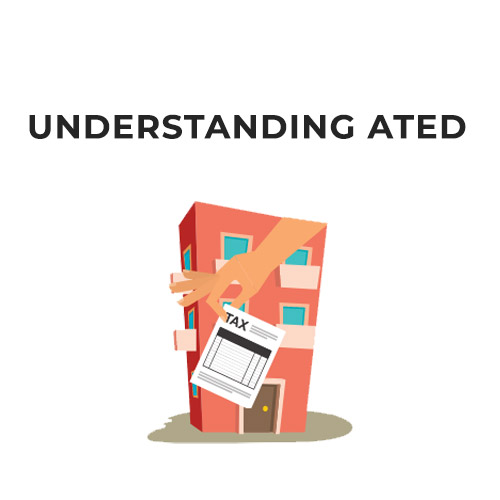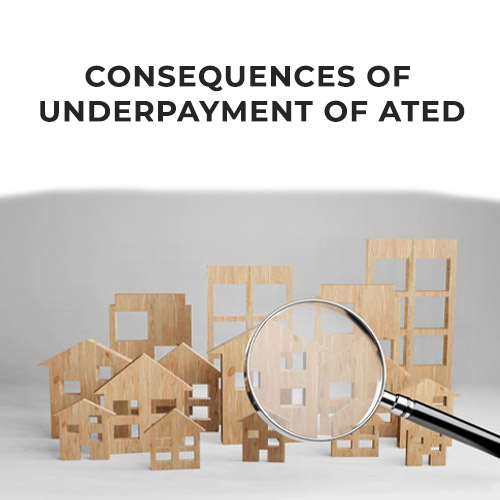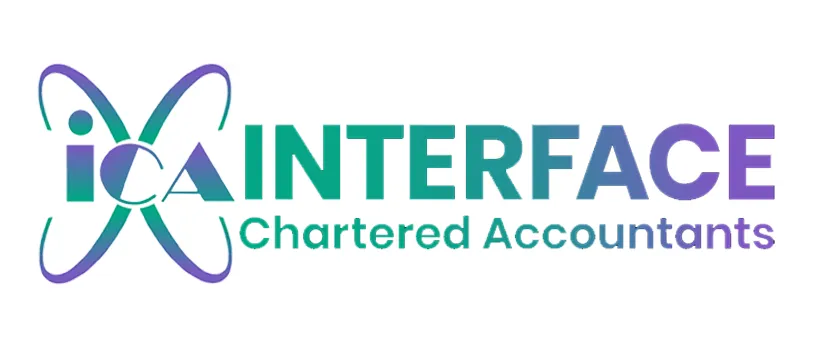
What is ATED?
Residential homes held by corporations, partnerships with corporate members, and collective investment plans are subject to the UK government’s annual tax on enveloped dwellings (ATED). It was created in 2013 as a part of a government drive to stop the use of corporations and other entities to evade paying inheritance tax and stamp duty.
Who is liable to pay ATED?
Companies and other non-natural people who own residential properties in the UK valued more than a specific amount are required to pay ATED. The cap is set at £500,000 for the 2022–2023 tax year.
How is ATED calculated?
The value of the property determines how much ATED is due. A sliding scale is used to calculate the tax, with the rate going up as the value of the property goes up. The ATED rate for houses worth between £500,000 and $1 million is £3,700 annually. The annual rate rises to between £7,500 and £243,750 for homes worth more than £1 million.
Examples of dwellings that fall under ATED ATED applies to residential properties that are not used as a main residence, such as:
- Properties that are let out to tenants
- Properties used for business purposes
- Properties that are not used at all, but are held as an investment
It is important to note that ATED does not apply to properties that are used as a main residence, or to properties that are held for charitable purposes.
Section 2: Consequences of underpayment of ATED:

Penalties for underpayment:
A firm or other non-natural person may be subject to fines if they fail to pay ATED in the appropriate amount. Underpayment of ATED can result in severe penalties, such as fixed fines of up to £400, daily fines of up to £60, and fines of up to 100% of the tax owed.
Interest on late payments:
Companies and other non-natural persons may be required to pay interest on late payments if they fail to pay the right amount of ATED on schedule. The current ATED late payment interest rate is 3.25%.
Legal implications:
Underpayment of ATED may have legal repercussions, and the corporation or other non-natural person that owns the property may face legal action as a consequence. This may be a time-consuming and expensive procedure that harms both your reputation and your finances.
It is crucial that businesses and other non-natural people follow ATED requirements and pay the appropriate tax amount and on time.
Section 3: HMRC’s nudge email campaign:

Explanation of nudge theory:
Behavioral economics and psychologists employ the idea of nudge theory to influence individuals to make wiser decisions. In order to promote adherence to rules or desirable actions, it requires employing constructive reinforcement and subtly placed reminders.
How HMRC is using nudge emails to encourage compliance:
To remind businesses and other non-natural people who own residential properties of their financial obligations to pay ATED, HMRC has started a nudge email campaign. ATED laws must be followed, thus a series of emails are being sent to property owners to remind them of important dates and offer advice.
Examples of nudge emails sent by HMRC:
The reminder emails from HMRC frequently start with a personalised greeting and include details on important dates as well as instructions on how to adhere to ATED laws. Here are some examples of the kinds of emails sent:
- A reminder email, sent a few weeks before the ATED payment deadline, reminding property owners of the need to pay their tax on time
- An email providing guidance on how to value a property for ATED purposes, to help property owners ensure that they are paying the correct amount of tax
- An email providing information on the penalties for non-compliance with ATED regulations, to encourage property owners to take their obligations seriously
Effectiveness of the nudge email campaign:
Since that it is impossible to determine how many property owners would have failed to comply with ATED requirements in the absence of the reminder emails, it is challenging to assess the efficacy of HMRC’s nudge email campaign. Yet, research suggests that the nudge theory may be a useful tool for promoting regulation compliance, thus it is hoped that the campaign would persuade more businesses and other non-natural people to pay the appropriate amount of ATED on time.
Section 4: How to avoid underpayment of ATED:
To avoid underpayment of ATED, companies and other non-natural persons that own residential properties should take the following steps:
- Check the value and usage of the property to see if it is subject to ATED. Property owners should do this for all of their properties. ATED may apply to a property if its value exceeds £500,000 and it is not being held for charity purposes or as a primary dwelling.
- Determine the amount of ATED that is owed. Property owners should use the appropriate ATED rates to determine the amount of tax due once it has been determined that the property is ATED-eligible.
- Submit an ATED return and promptly pay any taxes owed. Owners of real estate should file an ATED form with HMRC, detailing the property and the amount of tax owed. To prevent fines and interest costs, the tax must be paid on time.
- Seek out expert guidance. For the purpose of ensuring that they are adhering to ATED standards and paying the appropriate amount of tax, property owners should think about consulting a specialist. This may entail getting guidance on real estate assessment, tax preparation, and adherence to other tax laws.
Property owners can prevent underpayment of ATED and the ensuing fines and legal repercussions by following these actions. In order to prevent any possible problems, it is crucial to make sure that ATED requirements are handled seriously and that tax is paid on time.
Conclusion:

ATED is a significant tax that is imposed on businesses and other non-natural people that possess expensive residential homes in the UK. ATED underpayment can have serious financial and legal repercussions, including as fines, interest costs, and legal action.
HMRC has started a nudge email campaign to remind property owners of their duties and offer advice on how to comply with the tax in order to promote compliance with ATED requirements. Property owners can prevent underpaying ATED and the related penalties by taking actions including figuring out whether a property is subject to ATED, figuring out the amount of tax due, completing an ATED return, and getting expert guidance.
In order to prevent any possible problems, it is crucial for property owners to take their ATED commitments seriously and make sure that tax is paid on time. The email nudge campaign is a step in the right direction for promoting compliance and making sure that property owners are aware of their responsibilities under ATED laws.
Frequently Asked Questions:
What is ATED and who needs to pay it?
ATED, or the Annual Tax on Enveloped Dwellings, is a tax that is imposed on businesses and other non-natural people that own expensive homes in the UK that are worth more than £500,000.
What are the consequences of underpayment of ATED?
ATED underpayment can have serious financial and legal repercussions, including fines, interest fees, and court prosecution.
What is HMRC’s nudge email campaign and how does it work?
The goal of HMRC’s nudge email campaign is to remind property owners of their ATED regulatory duties and offer instructions on how to pay the tax. A series of customised emails are sent out as part of the campaign to property owners, reminding them of important dates and offering advice on compliance.
Is the nudge email campaign effective?
Although it is challenging to assess the efficacy of the nudge email campaign, research have demonstrated that the nudge theory can be a useful tool for promoting regulatory compliance.
What steps can property owners take to avoid underpayment of ATED?
Property owners should identify whether their property is subject to the tax, compute the amount of tax payable, file an ATED form, and pay the tax due on time to prevent underpaying ATED. ATED rules compliance might also be ensured by consulting a specialist.
 Skip to content
Skip to content

